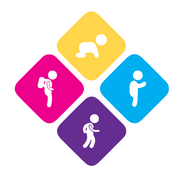4 FAQ About Cyberbullying & Teen Depression

We live in a technologically advanced society, which makes it easy to have access to anyone at almost any time with the click of a button. While social media offers instant connection and communication, it also opens the gateway to cyberbullying and teen depression. The guide below looks at this unfortunate trend and how you can protect your child’s emotional wellbeing.
What to Know About Online Bullying
What is cyberbullying?
Cyberbullying is defined as the use of electronics, such as cellphones or computers, to bully another individual. This typically involves an insult, threat, or intimidating message of some kind, designed to make the recipient feel bad about themselves or scared for their safety.
What are the signs your child is being bullied online?
 There are several different symptoms your child may present if they’re a victim of cyberbullying. One of the most common is fear or anxiety about going to school that is not connected to a test or important exam. They may also act jumpy or suspicious when on the computer or their phone, with an unwillingness to openly share information.
There are several different symptoms your child may present if they’re a victim of cyberbullying. One of the most common is fear or anxiety about going to school that is not connected to a test or important exam. They may also act jumpy or suspicious when on the computer or their phone, with an unwillingness to openly share information.
What are the effects of it?
Online bullying can lead to a number of serious consequences if not properly addressed. Teen depression can develop if the cyberbullying is consistent since it can foster low self-worth, a tendency for isolation, and social anxiety. Your child may also lose their appetite and stop eating, experience frequent bouts of nausea, or even chronic headaches.
How can you prevent cyberbullying?
Talking to your child about online bullying is one of the first steps to preventing this from occurring. Encourage your child to reach out after any hurtful incidences. You can then help them block the number or develop other defensive strategies—ignoring the bully is usually a good place to start.
If you’re concerned cyberbullying has impacted your child’s mental health, talk with the professionals at Children & Adolescent Clinic PC in Hastings, NE. The pediatricians on staff are knowledgeable in a range of health services, from regular checkups to identifying warning signs of teen depression, and will collaborate with other health care professionals to help you take the best care possible of your child. To learn more about Children & Adolescent Clinic PC, visit them online or call (402) 463-6828 with questions.
About the Business
Have a question? Ask the experts!
Send your question

